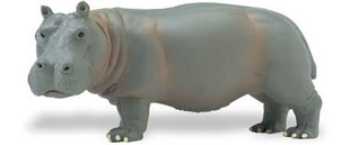The following poem is part of my Poems of Exile, loosely translated from the Latin of Seneca (or if you prefer pseudo-Seneca). There is a long explanation about the origins of the project in my post Exile II.
The original poem was probably written sometime during the first century, and thus reflects many concerns of that day - the life of a gladiator, a soldier, the difficulties of farming and fishing and the risk of famine. It offers a miserable view of life in general, but also has some surprising topical notes, given the events in North Africa this week.
Deceitful Hope does not offer optimism for the future in an overt way, but given Seneca's words have endured for nearly two thousand years, I suspect there must be something to hope for.
415 Deceitful Hope (Spes fallax)
Deceitful Hope, sweetly evil Hope, in truth most wicked,
Hope, the relief of miseries, who allows the Fates to drag us
to unsuspected ends. She makes us slaves to Fortune’s whim:
dutiful Hope stands with evil to the utmost.
Hope forbids you to accept death’s restful embrace.
she ignores defeat, all Hope values is tomorrow;
while cheating, she begs for a loan against the future.
Hope alone never perishes, she comes and returns
stronger, her evil is often most charming;
and whomever she ensnares, they are trapped all the same.
She is an inconstant lover, wildly moody at times,
and thinks it nothing to be bold and lame.
The gods wink at her promises: nothing is fixed
and she begs misfortune to be light.
In this fashion, the summoned, shipwrecked man
swims through fate’s stormy seas:
he may see a raft before sinking
by Hope’s trickery, the captive endures severe chains
and thinks he will prevail on the path of life;
at the stake, with limbs torn asunder
he hopes and by fixing to Hope, clings to his torment.
Hope commands us to hold up our heads, even tied to a stake
with lights flashing before our eyes.
The gladiator hopes in the shifting arena life,
that when the sword goes down his throat, he is murdered.
He hopes, captured by force, to be released by death.
Hope rescues the prisoner by melting bronze walls,
and Hope dwells alongside him in the pit.
Hope leads wars and the soldier’s secret wish to live;
It is Hope that orders the living shore of Libya be penetrated;
and O! by the gods, who is there but fair Hope
to see the ruin of Carthage! – all but a third was destroyed.
Swearing great hope, the exiled risk across the globe,
and dream of riches and revenge.
Of all, only Cato did not cling to hopeful words,
and the lies of the goddess Jove did not deceive him.
What does Hope not dare? Priam lives to mourn Hector;
Protesilaus’ wife had Hope.
Orpheus hoped to snatch his love out of the underworld,
and by singing hoped to distract the dogs.
With Hope his leader, Daedulus succumbed to mid-air breezes
and his new wonder frightened the birds.
Passiphae hoped to placate the Minotaur by scolding.
What won’t men be fooled to hope for?
He hopes the curved plough will break the furrows,
he hopes the winds will carry his sail.
Hope teaches to chase fish with hooks, birds with snares;
then Hope is followed by tyranny: heavy rakes and poor fields,
and she prepares a cheating account.
Hope always flatters, always spreading dishonesty;
she seizes the religion of the populace.
Hope never forsakes an illness deserted by doctors;
once a wish has been granted by Hope, it is never put aside.
Hope leads an unknown man to seek political life and
Her greed raises men to arms.
Hope says ‘endure! they would not touch your person:
fickle chance changes fortunes rapidly.’
Fortune plays with chance all over the world:
Hope always remains, never releases us, always returns renewed.
(Cato – Roman senator who took his own life rather than surrender, Priam – king of Troy, Hector – his son, Protesilaus – destined to be the first Greek killed at Troy, Daedalus – Athenian craftsman and inventor, Passiphae – mother of the Minotaur)













